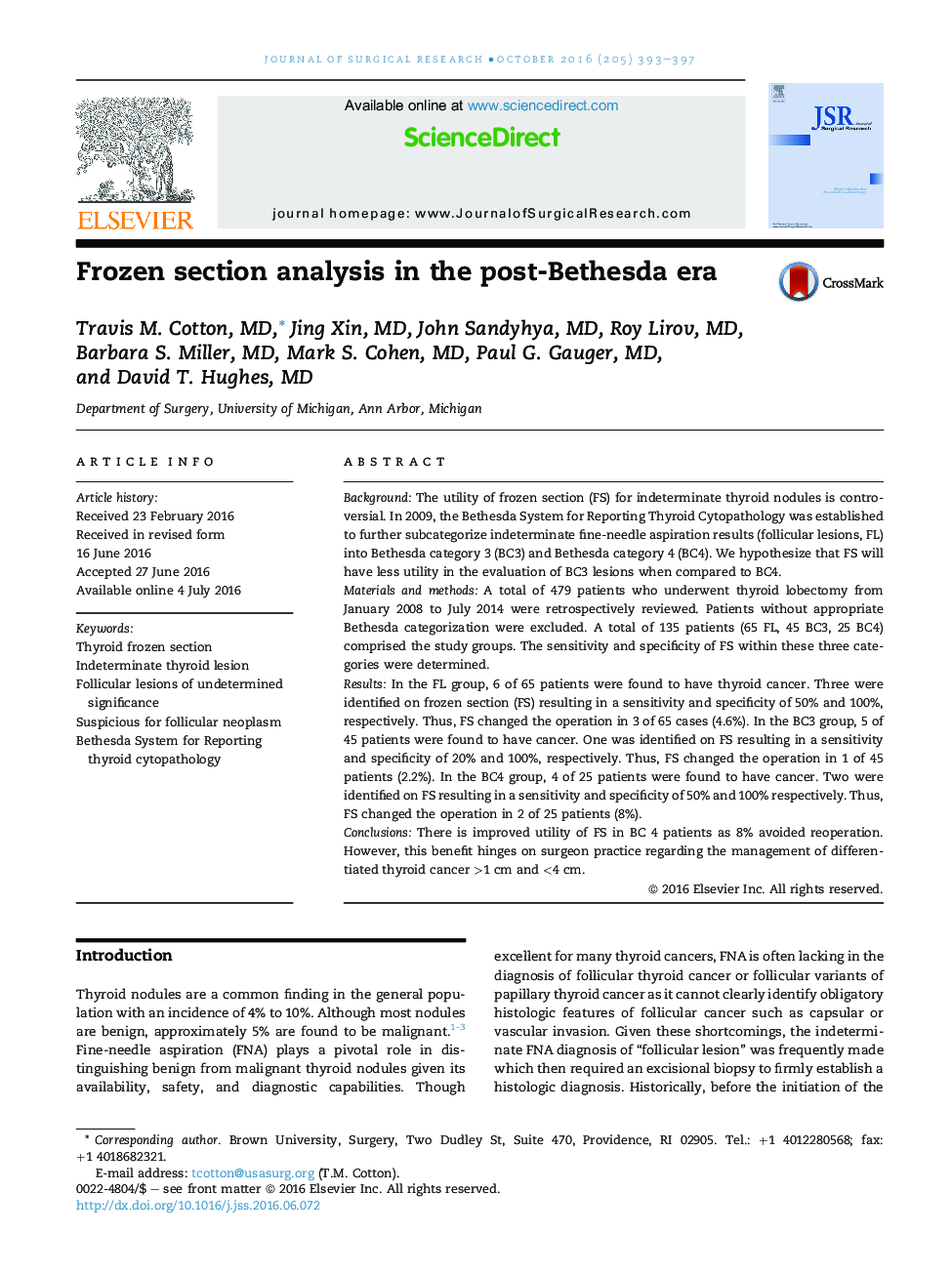| Article ID | Journal | Published Year | Pages | File Type |
|---|---|---|---|---|
| 4299045 | Journal of Surgical Research | 2016 | 5 Pages |
BackgroundThe utility of frozen section (FS) for indeterminate thyroid nodules is controversial. In 2009, the Bethesda System for Reporting Thyroid Cytopathology was established to further subcategorize indeterminate fine-needle aspiration results (follicular lesions, FL) into Bethesda category 3 (BC3) and Bethesda category 4 (BC4). We hypothesize that FS will have less utility in the evaluation of BC3 lesions when compared to BC4.Materials and methodsA total of 479 patients who underwent thyroid lobectomy from January 2008 to July 2014 were retrospectively reviewed. Patients without appropriate Bethesda categorization were excluded. A total of 135 patients (65 FL, 45 BC3, 25 BC4) comprised the study groups. The sensitivity and specificity of FS within these three categories were determined.ResultsIn the FL group, 6 of 65 patients were found to have thyroid cancer. Three were identified on frozen section (FS) resulting in a sensitivity and specificity of 50% and 100%, respectively. Thus, FS changed the operation in 3 of 65 cases (4.6%). In the BC3 group, 5 of 45 patients were found to have cancer. One was identified on FS resulting in a sensitivity and specificity of 20% and 100%, respectively. Thus, FS changed the operation in 1 of 45 patients (2.2%). In the BC4 group, 4 of 25 patients were found to have cancer. Two were identified on FS resulting in a sensitivity and specificity of 50% and 100% respectively. Thus, FS changed the operation in 2 of 25 patients (8%).ConclusionsThere is improved utility of FS in BC 4 patients as 8% avoided reoperation. However, this benefit hinges on surgeon practice regarding the management of differentiated thyroid cancer >1 cm and <4 cm.
